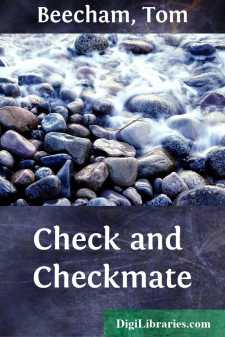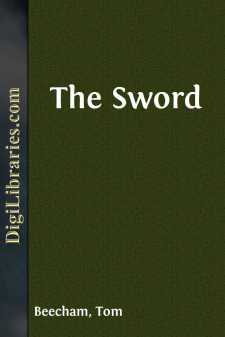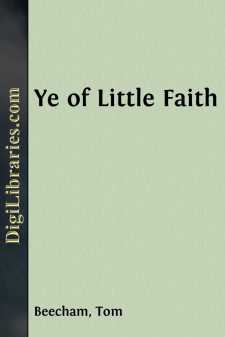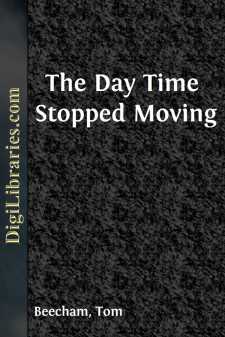Categories
- Antiques & Collectibles 13
- Architecture 36
- Art 48
- Bibles 22
- Biography & Autobiography 813
- Body, Mind & Spirit 142
- Business & Economics 28
- Children's Books 16
- Children's Fiction 13
- Computers 4
- Cooking 94
- Crafts & Hobbies 4
- Drama 346
- Education 46
- Family & Relationships 57
- Fiction 11829
- Games 19
- Gardening 17
- Health & Fitness 34
- History 1377
- House & Home 1
- Humor 147
- Juvenile Fiction 1873
- Juvenile Nonfiction 202
- Language Arts & Disciplines 88
- Law 16
- Literary Collections 686
- Literary Criticism 179
- Mathematics 13
- Medical 41
- Music 40
- Nature 179
- Non-Classifiable 1768
- Performing Arts 7
- Periodicals 1453
- Philosophy 64
- Photography 2
- Poetry 896
- Political Science 203
- Psychology 42
- Reference 154
- Religion 513
- Science 126
- Self-Help 84
- Social Science 81
- Sports & Recreation 34
- Study Aids 3
- Technology & Engineering 59
- Transportation 23
- Travel 463
- True Crime 29
Check and Checkmate
by: Tom Beecham
Description:
Excerpt
John Smith XVI, new President of the Western Federation of Autonomous States, had made a number of campaign promises that nobody really expected him to fulfill, for after all, the campaign and the election were only ceremonies, and the President—who had no real name of his own—had been trained for the executive post since birth. He had been elected by a popular vote of 603,217,954 to 130, the dissenters casting their negative by announcing that, for the sake of national unity, they refused to participate in any civilized activities during the President's term, whereupon they were admitted (voluntarily) to the camp for conscientious objectors.
But now, two weeks after his inauguration, he seemed ready to make good the first and perhaps most difficult promise of the lot: to confer by televiewphone with Ivan Ivanovitch the Ninth, the Peoplesfriend and Vicar of the Asian Proletarian League. The President apparently meant to keep to himself the secret of his success in the difficult task of arranging the interview in spite of the lack of any diplomatic contact between the nations, in spite of the Hell Wall, and the interference stations which made even radio communication impossible between the two halves of the globe. Someone had suggested that John Smith XVI had floated a note to Ivan IX in a bottle, and the suggestion, though ludicrous, seemed not at all unlikely.
John XVI seemed quite pleased with himself as he sat with his staff of Primary Stand-ins in the study of his presidential palace. His face, of course, was invisible behind the golden mask of the official helmet, the mask of tragedy with its expression of pathos symbolizing the self-immolation of public service—as well as protecting the President's own personal visage from public view, and hence from assassination in unmasked private life, for not only was he publicly nameless, but also publicly faceless and publicly unknown as an individual. But despite the invisibility of his expression, his contentment became apparent by a certain briskness of gesticulation and a certain smugness in his voice as he spoke to the nine Stand-ins who were also bodyguards, council-members, and advisors to the chief executive.
"Think of it, men," he sighed happily in his smooth tenor, slightly muffled by the mask. "Communication with the East—after forty years of the Big Silence. A great moment in history, perhaps the greatest since the last peace-effort."
The nine men nodded dutifully. The President looked around at them and chuckled.
"'Peace-effort'," he echoed, spitting the words out distinctly as if they were a pair of phonetic specimens. "Do you remember what it used to be called—in the middle of the last century?"
A brief silence, then a Stand-in frowned thoughtfully. "Called it 'war', didn't they, John?"
"Precisely." The golden helmet nodded crisply. "'War'—and now 'peace-effort'. Our semantics has progressed. Our present 'security-probe' was once called 'lynch'. 'Social-security' once meant a limited insurance plan, not connoting euthanasia and sterilization for the ellie-moes. And that word 'ellie-moe'—once eleemosynary—was once applied to institutions that took care of the handicapped."
He waited for the burst of laughter to subside. A Stand-in, still chuckling, spoke up.
"It's our institutions that have evolved, John."
"True enough," the President agreed. "But as they changed, most of them kept their own names. Like 'the Presidency'. It used to be rabble-chosen, as our ceremonies imply. Then the Qualifications Amendment that limited it to the psychologically fit. And then the Education Amendment prescribed other qualifying rules....








